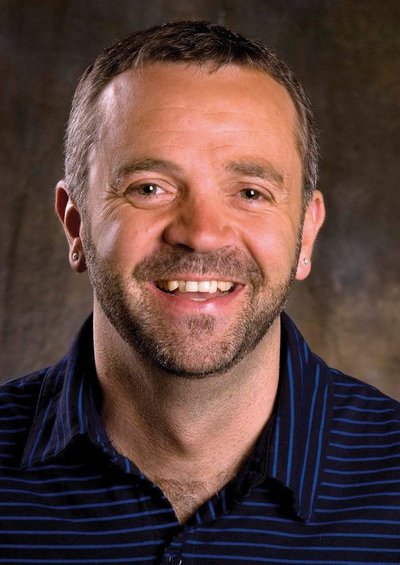May 31, 2007
Crispin Thurlow
You could say teaching is in Crispin Thurlow’s blood. “I come from a long line of teachers and preachers,” said Thurlow, an assistant professor of communication and recipient of a 2007 Distinguished Teaching Award. “Both my grandfathers were Anglican priests,” he recounted. “My mother, who started out teaching for 25 years, is now an Anglican priest. My father was a professor. My grandmother was a teacher.”
Thurlow sees it as “a kind of family business.” He said a fine line separates preaching and teaching.
“What I like about both of them,” he said, “is that they are vocations in the truest sense of the word.”
Effective practitioners in both fields have something else in common — what Thurlow refers to as “the passion thing.” It’s an element his peers and his students have picked up on.
Nominating letters recognize that quality in Thurlow shining through, even in large introductory courses. He used innovative teaching techniques that had “the entire 400- person auditorium enthralled in every lecture and presentation,” wrote former student Mila Levkovsky.
“One has a kind of calling to teach, and it doesn’t have to be a religious calling,” said Thurlow, “just a sense of this is what I need to do.”
Religion and education also have their respective rituals, he noted. And one teaching tradition Thurlow wants to preserve is keeping students and teachers in class together.
More students are opting for podcasts these days, particularly for large lectures. But Thurlow isn’t such a fan of that technology –unless distance learning is the only option available.
“I really want the students there in my class,” he said. “One of the things I enjoy about teaching is the theatrics of teaching. There’s something very special about what I’d call ’embodied teaching.’
“Nothing replaces that face-to-face embodied experience which has all the magic and energy of live theater,” said Thurlow, who in fact has a background in theater, having trained for two years as an actor at The Poor School in London, and, before that, having qualified as a teacher of speech and drama through Trinity College London.
Thurlow said he understands he has a duty to transmit and produce knowledge. Still, he is always on the lookout for opportunities to improvise and come up with analogies to connect daily events with deeper principles.
Thurlow was born in England and lived there for 12 years before spending the next decade or so in South Africa. A United States resident, he maintains his British citizenship, as well as his native accent.
He said he is still adjusting to differences between British and American students. One of the biggest, he said, has been “around the culture of grading.”
“In Britain,” Thurlow said, “I think students have an expectation that they start with zero and they have to prove to me why I should give them more than zero. Whereas I think in America, students start with the expectation that they have 100 percent, and I have to prove why I’m taking away from that. Working this out has been important.”
One of the things he said he really likes about young American people “is that they have such a great sense of self confidence and self assuredness.”
Asked who has inspired him, Thurlow cited bell hooks, the African American feminist scholar. Though he’s never met her, he said he’s read her work over the years and adopted some of her views regarding “communities of learning.”
That includes the philosophy that, “It’s not just that I have knowledge and I’m going to drop it on you,” he said. “It’s not that I’m the all-powerful knowledge machine.”
Rather, both he and his students are on a journey, learning together, asking questions.
“I just happened to have asked some of them maybe sooner,” Thurlow said, “and have done a bit of research to find out some of the answers. But I’m still traveling.”

